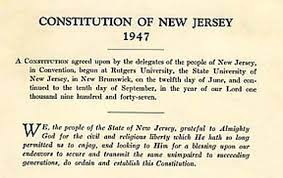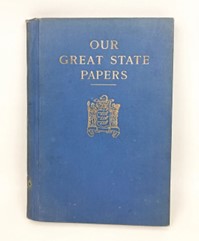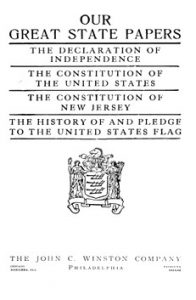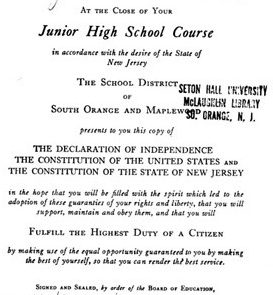by Jeanne Brasile
80 years ago Cardinal Eugenio Pacelli was elected Pope, assuming the name Pope Pius XII

As we approach the 84th Anniversary of Pope Pius XII’s coronation, which took place on March 12, 1939, the Department of Archives and Special Collections and the Walsh Gallery are poised to receive a large bequest of materials from the Estate of Sister Margherita Marchione, a Roman Catholic sister, educator, author and scholar of Pope Pius XII. Sister Marchione joined the Religious Teachers Filippini of Morristown in 1938 at the age of 16 – just one year before the coronation of Pope Pius XII. This event must have made an indelible impression on the young sister, for she would go on to author numerous books about him. In her later years, she was an ardent supporter of his canonization, establishing a small research facility and museum on the grounds of Villa Walsh where the Filippini Sisters live and teach.
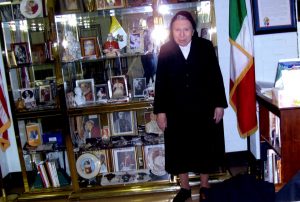
Over time, Sister Margherita compiled an immense collection of books and artifacts on Pope Pius XXII including photographs, relics, paintings, artifacts and the slippers he was wearing at his coronation. Sister Marchione’s bequest is to be accompanied by an extensive compilation of rare books and manuscripts from the sister’s archives. Reviewing the collection in preparation for the transfer of the objects, the gallery and archives staff were amazed by the meticulously organized displays with labels and notes about the artifacts. Photographs were organized with dates, captions and notes about the events and subjects depicted. Objects had notes on their acquisition and display cases kept dust and light from damaging objects. “It is unusual to have a collection come to us with this level of description and organization. It gives us a very real sense of Sister Margherita’s passion and attention to detail – she must have been a force to reckon with having seen all that she had accomplished and her avid documentation of her life’s work,” noted gallery staff.
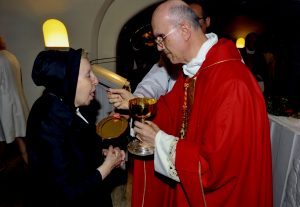
In her later years, the sister was dedicated to the cause of the canonization of Pope Pius XII. Born Eugenio Maria Giuseppe Giovanni Pacelli in 1876 in Rome, he served in numerous offices before ascending to the papacy; secretary of the Department of Extraordinary Ecclesiastical Affairs, papal nuncio to Germany, and Cardinal Secretary of State. He ascended to the papacy and was crowned on March 12, 1939, serving until his death on October 9, 1958. The cause of canonization of Pope Pius XII was opened on November 18,1965 by Pope Paul VI during the final session of the Second Vatican Council. He was declared Venerable by Pope Benedict XVI on December 19, 2009, the first step on the road to sainthood.
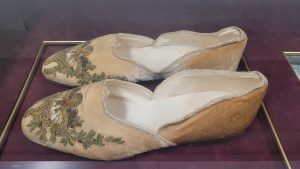
When these materials come under the care of the archives and gallery at Seton Hall University, they will become part of a large and distinguished collection of liturgical objects, Catholic material culture, rare books and manuscripts that document the story Seton Hall University and the Roman Catholic Church, particularly of the Archdiocese of Newark. Existing collections include a large assembly of vestments, liturgical objects and rare bibles in addition to papal bulls and portraits of Catholic religious leaders. Before objects are made available for research and exhibitions, they will undergo an assessment by gallery staff, including a rigorous process of documentation, detailed description, photography and preservation in custom archival mounts to keep them safe for generations to come. The end result will be a searchable – and ultimately – public facing online collection that is of high research value to students, faculty and scholars, as well as exhibitions, projects and programs inspired by the collection. The collection will also be available by request for on-site research in the University Libraries’ Reading Room.
If you would like to see a small assortment of art and artifacts from the university’s collections, visit Google Arts and Culture. The Walsh Gallery has a considerable collection of fine art, artifacts and archeological specimens for use by faculty, students and researchers. For access to this or other objects in our collections, contact us at 973-275-2033 or walshgallery@shu.edu to make a research appointment.
The Walsh Gallery welcomes visits for personal enjoyment, research and enrichment. We also welcome scheduled group visits that use exhibitions or the university’s collections for pedagogy and research. If you would like to inquire about how the gallery and special collections can support your teaching and learning experience with objects and/or exhibitions, please contact us.

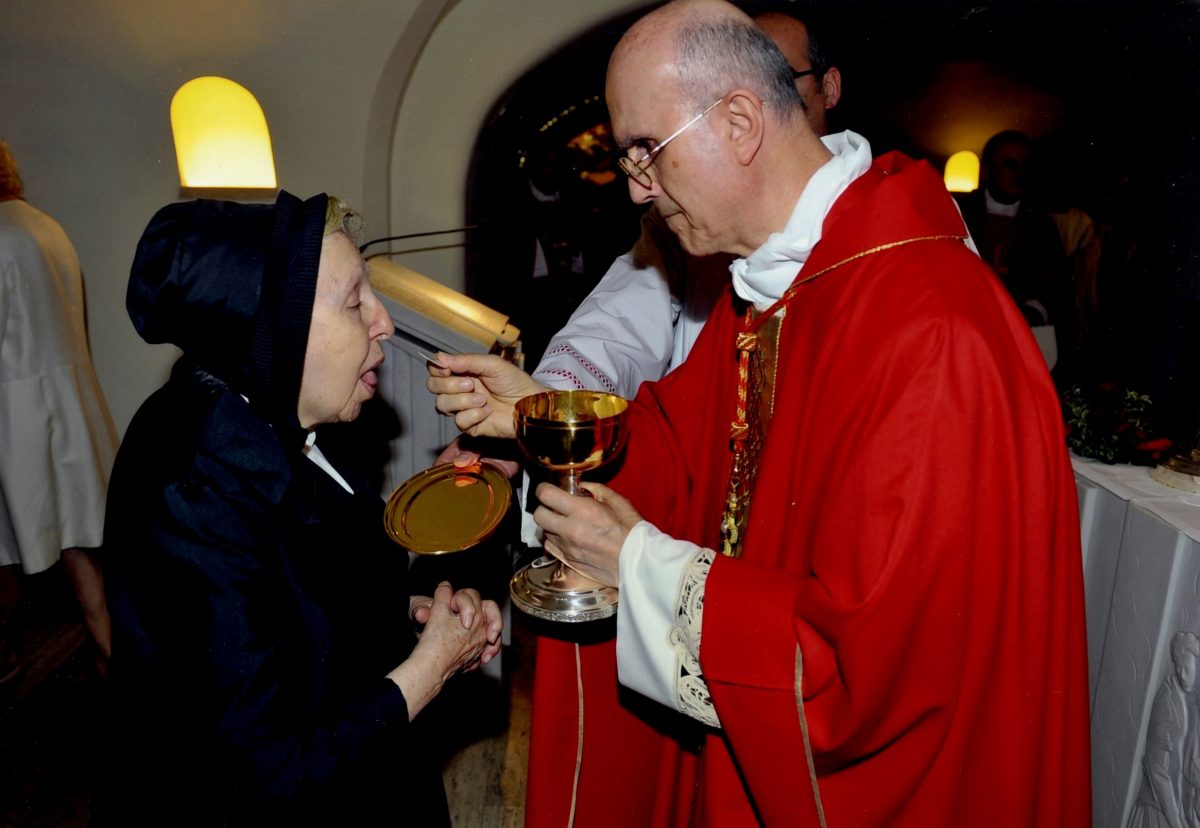
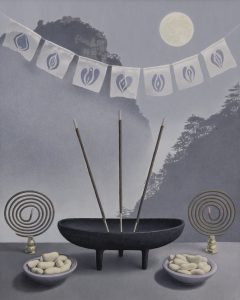



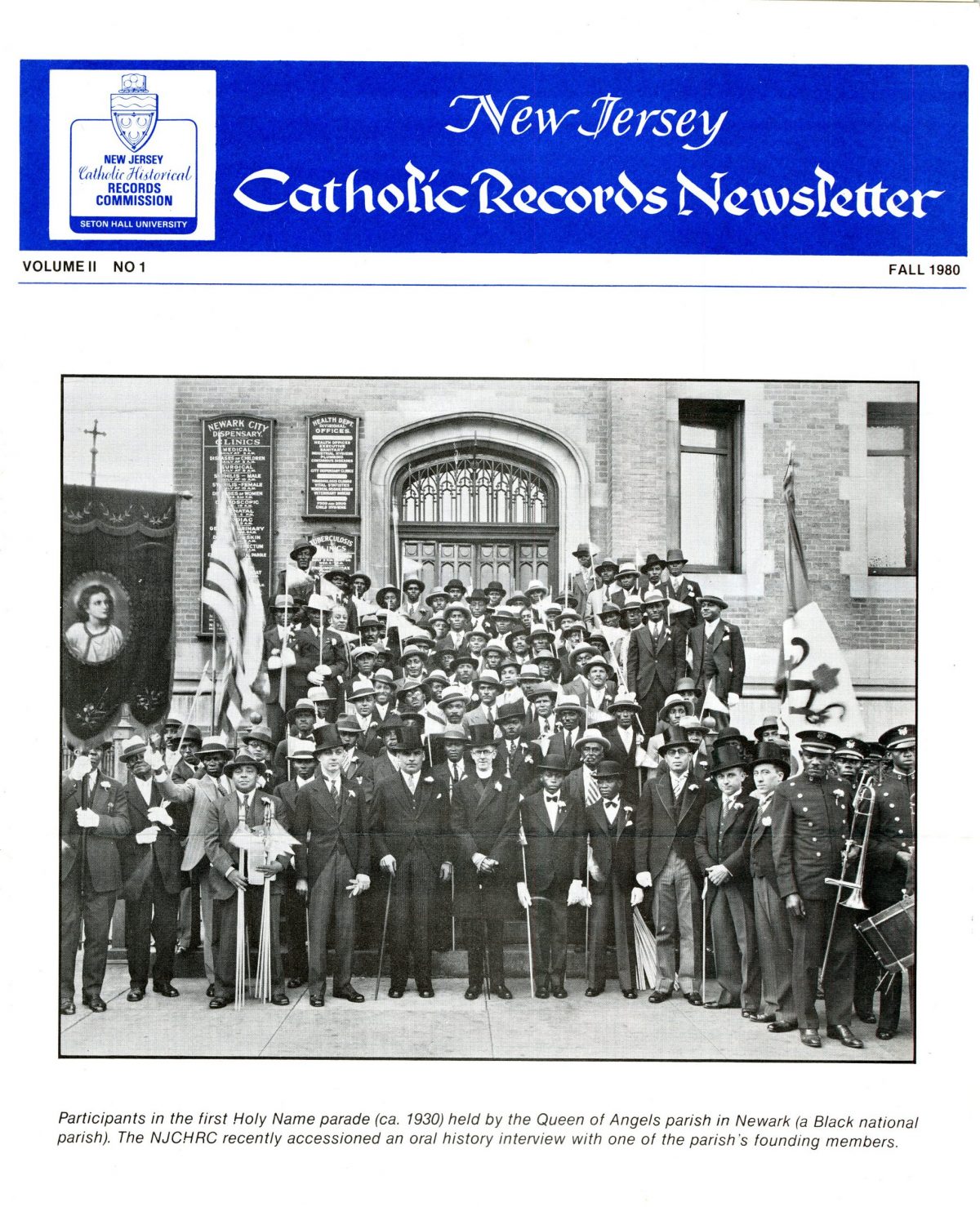

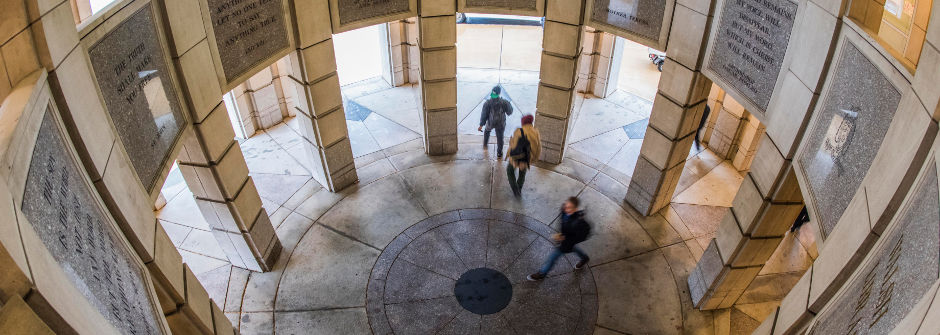
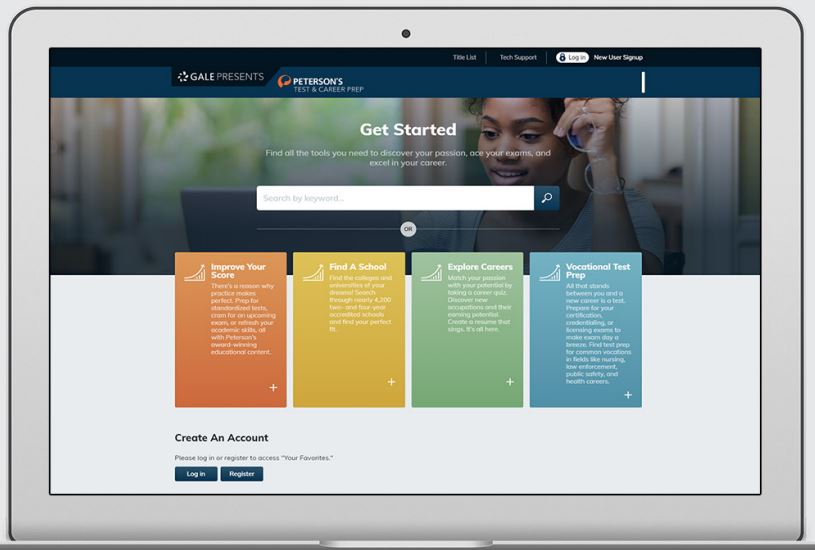

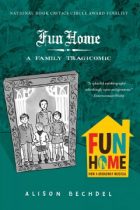 Fun Home
Fun Home 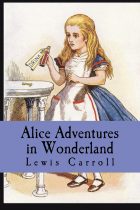 Alice’s Adventures in Wonderland
Alice’s Adventures in Wonderland 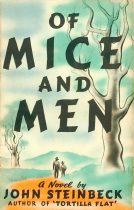
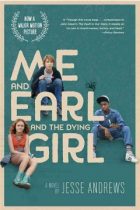 Me and Earl and the Dying Girl: a Novel
Me and Earl and the Dying Girl: a Novel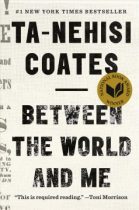 Between the World and Me: Notes on the First 150 Years in America
Between the World and Me: Notes on the First 150 Years in America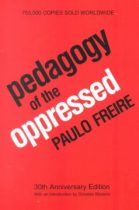 Pedagogy of the Oppressed
Pedagogy of the Oppressed The Call of the Wild
The Call of the Wild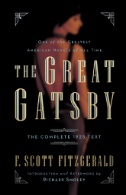 The Great Gatsby
The Great Gatsby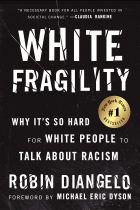 White Fragility: Why It’s So Hard for White People to Talk About Racism
White Fragility: Why It’s So Hard for White People to Talk About Racism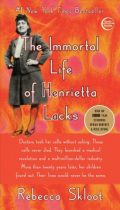 The immortal Life of Henrietta Lacks
The immortal Life of Henrietta Lacks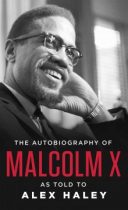 The Autobiography of Malcolm X
The Autobiography of Malcolm X